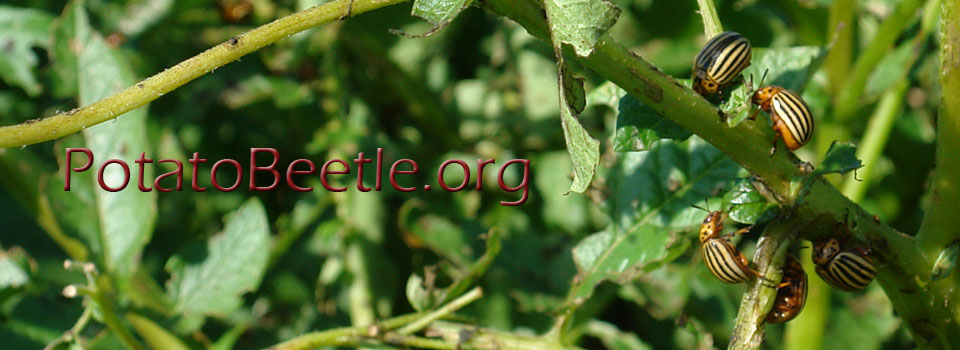Kalsi, M. and S. R. Palli. 2017. Insect Biochemistry and Molecular Biology 83: 1-12. http://dx.doi.org/10.1016/j.ibmb.2017.02.002
Colorado potato beetle (CPB), Leptinotarsa decemlineata is a notorious pest of potato. Co-evolution with Solanaceae plants containing high levels of toxins (glycoalkaloids) helped this insect to develop an efficient detoxification system and resist almost every chemical insecticide introduced for its control. Even though the cross-resistance between plant allelochemicals and insecticides is well acknowledged, the underlying molecular mechanisms are not understood. Here, we investigated the molecular mechanisms involved in detoxification of potato plant allelochemicals and imidacloprid resistance in the field-collected CPB. Our results showed that the imidacloprid-resistant beetles employ metabolic detoxification of both potato plant allelochemicals and imidacloprid by upregulation of common cytochrome P450 genes. RNAi aided knockdown identified four cytochromes P450 genes (CYP6BJa/b, CYP6BJ1v1, CYP9Z25, and CYP9Z29) that are required for defense against both natural and synthetic chemicals. These P450 genes are regulated by the xenobiotic transcription factors Cap n Collar C, CncC and muscle aponeurosis fibromatosis, Maf. Studies on the CYP9Z25 promoter using the luciferase reporter assay identified two binding sites (i.e. GCAGAAT and GTACTGA) for CncC and Maf. Overall, these data showed that CPB employs the metabolic resistance mediated through xenobiotic transcription factors CncC and Maf to regulate multiple P450 genes and detoxify both imidacloprid and potato plant allelochemicals.
